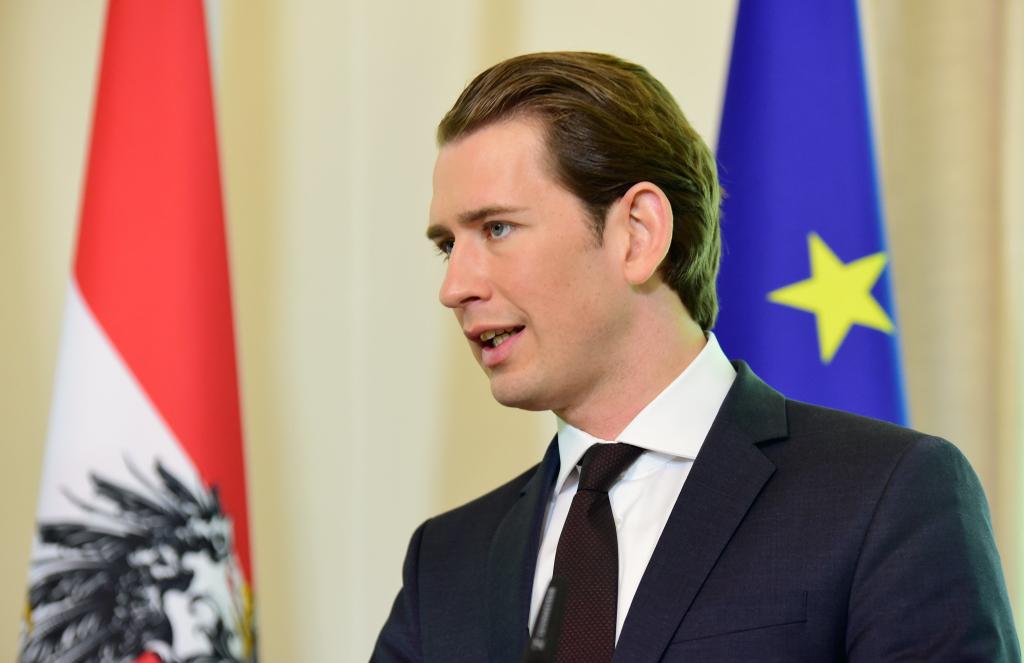Thessaloniki gets ready for its metro launch in November
The underground rapid transit lines have been under construction for almost two decades due to various project delays
 TheMayor.EU logo
TheMayor.EU logo 
sebastian kurz, Source: Austrian Chancellor Sebastian Kurz by Unis Vienna/Lilia Jiménez-Ertl (CC BY-NC-ND 2.0)
They are among the first countries in Europe to present a concrete plan of action
Earlier this week Austrian and Danish authorities announced their concrete plans of gradual return to normalcy following the coronavirus outbreak in their countries. Both states believe that they have already weathered the worst of the storm with the daily number of new cases of COVID-19 rapidly falling over the past week.
Invoking religious metaphors, Austrian Chancellor Sebastian Kurz announced his government’s plans for an Easter “resurrection” of society. After having contained the worst of the outbreak, the Austrian healthcare system has been able to regain its footing and is no longer under constant assault, thus allowing more freedom of movement to the authorities.
That is why, on 14 April, mere days after Easter, Austria will begin the process of return to normalcy. First up will be small unessential shops, while a couple of weeks later, on 1 May, larger shopping venues will also be allowed to reopen. Hotels, schools and restaurants are expected to open their doors sometime later in the month.
Rules on social distancing and caps on numbers of people in closed spaces, however, will remain in place, according to the government’s plan, while events will again be allowed to take place, at some point in July.
Alongside the most ambitious economic programme in response to the coronavirus outbreak, Danish authorities have also been investing in mass testing of the population. That has allowed the Nordic country’s government to contemplate a quicker return to normalcy.
The first step of Denmark’s plans is the reopening of nurseries and primary schools on 15 April. Businesses, on the other hand, will be allowed to operate once more on a gradual basis, as determined by central authorities.
Danish PM Mette Frederiksen, however, stated that in any sign of trouble or return of the disease, all restrictive measures will immediately be put back in place until a new approach can be figured out.
With Austria and Denmark already looking towards a return to normalcy, it should come as no surprise if other European states are also hard at work figuring out their own approaches to leaving this crisis behind.

The underground rapid transit lines have been under construction for almost two decades due to various project delays

Now you can get your wine in Talence by paying directly in Bitcoin

That’s because the state has to spend money on updating the railway infrastructure rather than subsidizing the cost of the popular pass

Rethinking renewable energy sources for the urban landscape

The examples, compiled by Beyond Fossil Fuels, can inform and inspire communities and entrepreneurs that still feel trepidation at the prospect of energy transition

Now you can get your wine in Talence by paying directly in Bitcoin

The 10th European Conference on Sustainable Cities and Towns (ESCT) sets the stage for stronger cooperation between the EU, national and local level to fast track Europe's transition to climate neutrality.

At least, that’s the promise made by the mayor of Paris, Anne Hidalgo

The underground rapid transit lines have been under construction for almost two decades due to various project delays

At least, that’s the promise made by the mayor of Paris, Anne Hidalgo

Hostal de Pinós is located in the geographical centre of the autonomous region

Despite its church-y name, the district has long been known as the hangout spot for the artsy crowds

Urban dwellers across the EU are having a say in making their surroundings friendlier to people and the environment.

Forests in the EU can help green the European construction industry and bolster a continent-wide push for architectural improvements.

Apply by 10 November and do your part for the transformation of European public spaces

An interview with the Mayor of a Polish city that seeks to reinvent itself

An interview with the newly elected ICLEI President and Mayor of Malmö

A conversation with the Mayor of Lisbon about the spirit and dimensions of innovation present in the Portuguese capital














